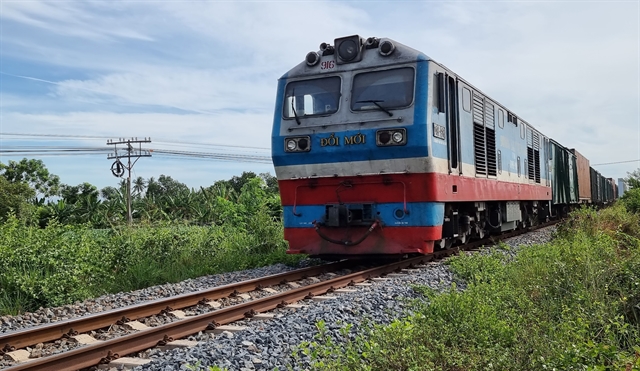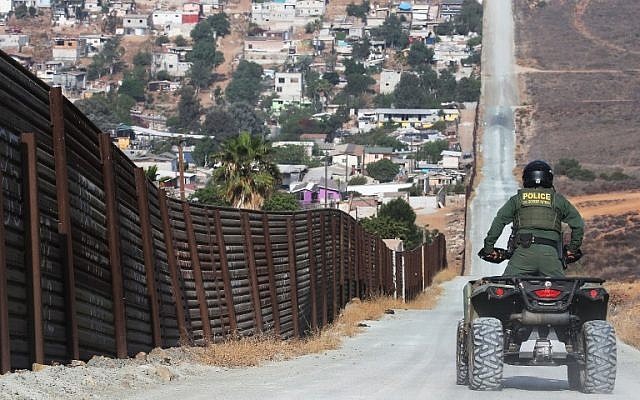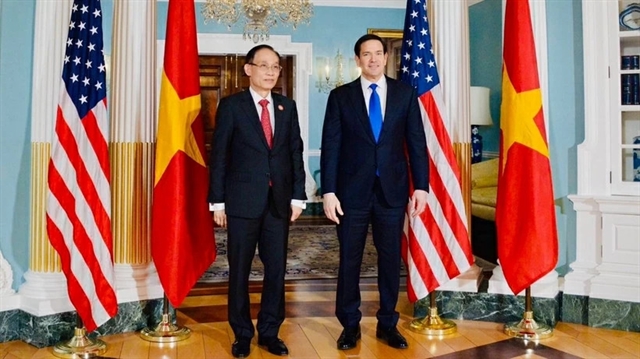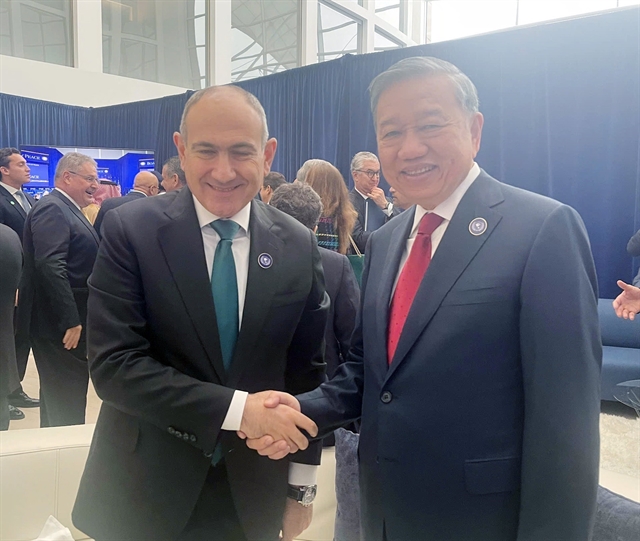 World
World

The Pentagon is expected to deploy about 800 troops to the US-Mexico border, two US officials said on Thursday, after President Donald Trump said the military would help tackle a "national emergency" and called on a caravan of migrants to turn around.
 |
| A US Border Patrol agent patrols along a section of the US-Mexico border fence in San Diego, California on July 16, 2018. — AFP/VNA Photo |
WASHINGTON — The Pentagon is expected to deploy about 800 troops to the US-Mexico border, two US officials said on Thursday, after President Donald Trump said the military would help tackle a "national emergency" and called on a caravan of migrants to turn around.
The active-duty troops would augment the 2,000 or so National Guardsmen already deployed to support operations on the border, and could come from multiple military bases around the US.
Defense Secretary Jim Mattis was expected to sign orders either on Thursday or Friday for the new deployment, one official said.
The troops would include doctors and engineers and would be used mainly to provide logistical support including tents, vehicles and equipment.
The official said the troops would satisfy elements of a "wish list" for military assistance sent to the Pentagon by the Department of Homeland Security, the US agency with responsibility for the border.
Trump tweeted that "Democrat inspired" laws make it difficult to stop people at the border.
"I am bringing out the military for this National Emergency. They will be stopped!" he said.
In April, Trump said he would send thousands of National Guard troops to the southern border.
That initial authorization allowed for about 4,000 guardsmen to be sent to the frontier, but only about half that number have been deployed.
Those troops are mainly serving in a support role to help free up border patrol officers.
Pentagon spokesman Navy Captain Bill Speaks said the Defense Department was currently working with the Department of Homeland Security "to determine the specifics of our support" to border authorities.
A long march north
Thursday’s move comes as thousands of Central American migrants are crossing Mexico toward the United States in a slow-moving caravan.
The issue has become a rallying cry for the US president, who has taken a hard line on illegal immigration and has repeatedly kept the story in the headlines in the run up to America’s midterm congressional elections that could see the Democrats regain some degree of power.
Many of the migrants are fleeing poverty and insecurity in Honduras, where powerful street gangs rule their turf with brutal violence.
"To those in the Caravan, turnaround, we are not letting people into the United States illegally," Trump tweeted on Thursday afternoon.
"Go back to your Country and if you want, apply for citizenship like millions of others are doing!"
Trump had signaled his intention to send more troops last week, tweeting that unless Mexico stopped the "onslaught" of people from Guatemala, Honduras and El Salvador, he would "call up the US Military and CLOSE OUR SOUTHERN BORDER!"
He has also announced the US would start cutting aid to Guatemala, Honduras and El Salvador.
Guatemalan Foreign Minister Sandra Jovel dismissed the threat as a posture adopted for the media, telling reporters that the country had received no official notice of the move.
"We have had no official information, and I rather think it has all been a show for the media," the diplomat said Thursday, adding that the two countries maintained "excellent relations."
Early Thursday, the caravan set off from the town of Mapastepec in the southern Mexican state of Chiapas, moving on to the next stop in their long march north.
Some rode on trucks but most made the trek to the town of Pijijiapan on foot.
"Yes, we could do it!" they shouted when they reached their, exhausted, seven hours later.
"Little by little, we are going to arrive," said Luis Alberto Adalberto, 21, one of the migrants.
But four days after crossing into Mexico, the caravan is still more than 3,000 kilometers (1,860 miles) from the US border.
"It’s hard, and we know this country is dangerous too, but back in Honduras it’s even more dangerous, they kill for nothing," said Josena Anibal Mejia, 27, as he walked with his daughter.
The United Nations estimates that 7,000 people have joined the caravan since it set out from San Pedro Sula, Honduras, on October 13. — AFP




